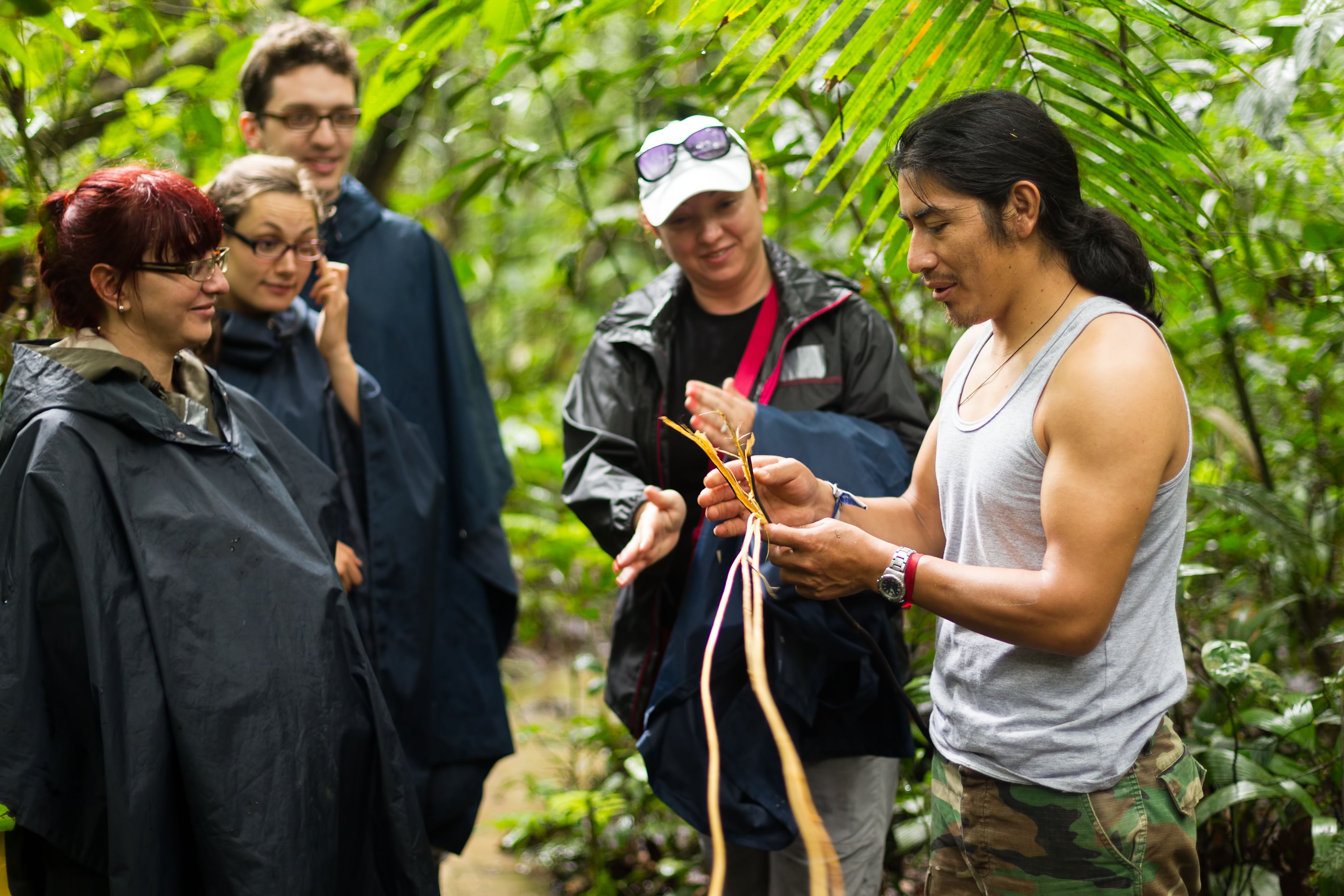Quick Links
Summary
- Greetings vary around the world, so it's important to know the appropriate word for hello in each country you visit. Some common ones include Hola, Bonsoir, Privet, Merhaba, Ciao, Ni Hao, and Kon'nichiwa.
- Different cultures have different expectations when it comes to small talk. In some countries, asking "How Are You?" to strangers may be seen as too personal, while in others, it's expected to ask about the well-being of not only the person but also their family members.
- Cultural norms regarding social interactions, such as kissing on the cheeks as a greeting in Europe or addressing only the husband in conservative countries, should be respected and understood when meeting people from different cultures. It's important to read the situation and adapt accordingly.
A mosaic of cultures around the world means that there are many ways to greet each other and say "hello". Not only does "hello" change around the world but also so too does small talk and how to chat with strangers. This is one of the first parts of the cultural shock travelers experience.
International greetings is a very large and complex topic, and it is only possible to talk about a very few of the more obvious differences around the world in this article. The most common phrases to know while traveling differ somewhat by region. Here are some of the things to know about greetings and how to small talk with strangers.
Saying "Hello" Around The World
The English word "Hello" has become universally understood around the world - and it has become the near-universal greeting on the phone. But while it may be understood, most languages have their own words for the first greeting.
- Spanish: Hola
- French: Bonsoir
- Russian: Privet (Informal) & Zdravstvuyte (Formal)
- Turkish: Merhaba
- Italian: Ciao (also goodbye)
- Chinese: Ni Hao
- Japanese: Kon'nichiwa
In many countries, it is strange to ask "How Are You?" to strangers. In places like Central and Eastern Europe, an expression like "How Are You?" is considered a more serious question. Strangers may look back strangely and wonder why they have been asked what is received as a serious question. In some Eastern European countries, it is an expression reserved for friends and not strangers.
In English, the phrase is typically not serious. Few if any people expect to hear someone's life story and mostly just expect the standard answer of "ok" or "fine" regardless of how the other person actually is. In some countries, people may not understand that and proceed to give a life story.
In some other countries in Latin America, it can go the other way, and it is rude to get on with a conversation until the niceties are completed. It may be expected to ask about the well-doing of not only the person in question but also the individual members of their family. Learn some of the common Spanish vocabulary before visiting Latin America.
Keep in mind that a part of saying 'hello' in much of Europe is to kiss beside the cheeks - never on the lips (the number & order of kisses varies from country to country).
Small Talk Around The World
As a rule, locals understand that people from other countries are different. They are generally accepting of what to them are strange questions and peculiar conversation points.
Again in much of Europe (particularly in the East), it is strange to have small talk about the weather. At the same time, the weather is universally a point of small talk in England as well as other English-speaking countries. In some countries, the weather is very stable, so it is not very interesting to chat about. e.g., in Egypt, the weather is likely to be hot and sunny - just like most other days of the year.
Conversely, Westerners may be caught off-guard by the small talk that people in other countries may direct at them. In parts of Asia, it can be normal to ask strangers questions that would be considered personal or impertinent in the West. E.g., it may be common to ask, "Are you married?" followed by "Why are you not married?" or "How old are you, and why don't you have kids?".
In some places, it may be accepted to remark on things considered rude in the West - such as someone's body weight.
The key to engaging with other cultures is always to read the situation. If someone is seemingly friendly, but asking questions that may be considered rude, then give it the benefit of the doubt and chalk it up to different cultures.
What Else To Know About Meeting People Around The World
In some conservative countries, it is normal for men to only address the husband or boyfriend of a woman. Women traveling in the Middle East and other places should not be offended if she asks a question and the answer is directed to her husband.
Everyone should be modestly dressed when visiting Iran (women should wear head coverings, and men should wear long pants)
This can go a step further where it is rude or even not acceptable for men to talk to women at all (although this is typically in the most conservative of countries). If a traveling man is invited into a Middle Eastern man's home, then his wife may even avoid the room where the male guest is. It is also better not to offer to shake hands with women in conservative countries. The dress code is something else to be aware of when visiting some countries.
If someone is joining a social group in some countries like France or Iran, it is polite to greet everyone individually. And again, shake hands (or kiss) and say goodbye to everyone individually when leaving. Group meetings in Iran can spend a lot of time greeting everyone coming and going.





